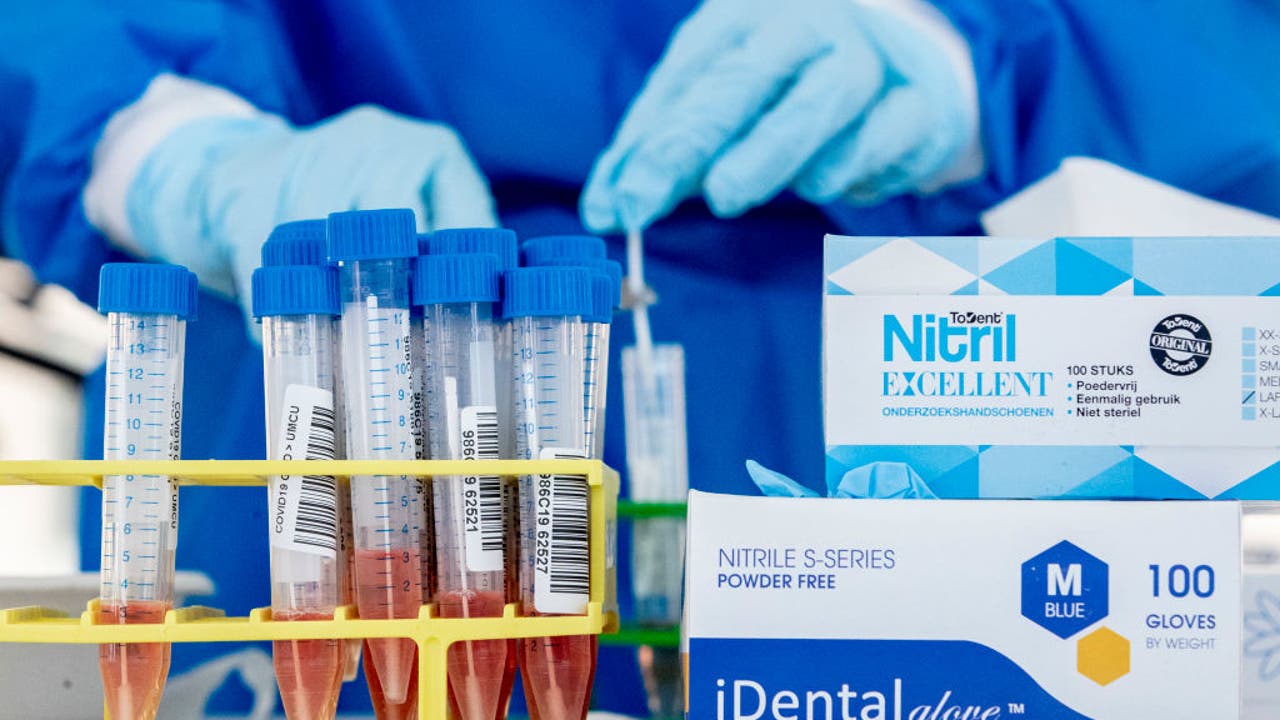Parents issue a warning after their 3-year-old has a COVID-19-induced stroke
Colt Parris, three, is much better after doctors believed he suffered a stroke after contracting COVID-19.
LOS ANGELES – According to a study by the National Institutes of Health, the researchers found evidence to suggest that brain damage may be a product of COVID-19.
The researchers found damage to blood vessels and inflammation in the brain of 19 deceased COVID-19 patients.
“We found that the brains of patients who contract SARS-CoV-2 infection may be susceptible to microvascular damage to blood vessels. Our results suggest that this may be caused by the body’s inflammatory response to the virus,” said Avindra Nath, MD, a clinician. director of NIH’s National Institute of Neurological Diseases and Stroke (NINDS).
Nath, the study’s senior author, added that while COVID-19 is more commonly known as a respiratory disease, he hopes that this study will help the medical community recognize the scope of complications that can arise from contracting the deadly coronavirus.
“We hope these results will help doctors understand the full spectrum of problems that patients may experience so that we can come up with better treatments,” said Nath.
In this study, the researchers analyzed brain tissue samples from 19 patients who died of COVID-19-related complications between March and July 2020. The ages of these patients were between 5 and 73 years old and died within a few hours to two months after the report coronavirus symptoms, according to the study.
The researchers noted that many of these patients also had one or more risk factors, including diabetes, obesity and cardiovascular disease.
After examining patients’ brain tissue, the researchers determined that the damage they identified in the brain was the most commonly associated with strokes or other neurological disorders.
“We were completely surprised. We originally expected to see damage from lack of oxygen. Instead, we saw multifocal areas of damage that are usually associated with strokes and neuroinflammatory diseases,” said Dr. Nath.
The researchers hoped to find damage from lack of oxygen, as COVID-19 attacks the lungs, preventing oxygen from reaching other organs that desperately need it to function properly.
“So far, our results suggest that the damage we saw may not have been caused by the SARS-CoV-2 virus that directly infects the brain,” said Dr. Nath. “In the future, we plan to study how COVID-19 damages the blood vessels in the brain and whether it produces some of the short and long-term symptoms that we see in patients.”
Previous studies have indicated that people infected with COVID-19 may experience other neurological effects.
In a separate October study of more than 84,000 people, led by Adam Hampshire, a doctor at Imperial College London, the researchers found that in some of the worst cases, patients experienced mental decline equivalent to brain aging in 10 years.
RELATED: Researchers See Decline in Brain Function in Some COVID-19 Survivors
Of all patients studied in October, 60 reported having been placed on a ventilator, 147 were hospitalized but did not need a ventilator, 176 received medical assistance at home, with breathing difficulties, 3,466 had breathing problems, but did not receive medical assistance and 9,201 were sick without respiratory symptoms. The team said 361 reported having a positive biological test.
When analyzing patient data, the study authors said they found significant cognitive decline in some individuals. “[Cognitive deficits] were of substantial effect size for people who were hospitalized, but also for mild but biologically confirmed cases that did not report breathing difficulties, “the researchers wrote in a post published in MedRxiv.” More granular performance analyzes support the hypothesis that COVID-19 has a multisystemic impact on human cognition. “

Utrecht, Netherlands – September 22: View of test tubes of the corona at a test site on September 22, 2020 in Utrecht, Netherlands. There is a lack of testing capacity in the country, so teachers and medical staff have priority testing. (Phot
Last month, FOX television stations reported an incident involving a child from Missouri that doctors believe had suffered a stroke after contracting COVID-19.
RELATED: ‘Be Aware’: Parents issue warning after 3-year-old son suffers stroke induced by COVID-19
Doctors told the parents of three-year-old Colt Parris that they believed the deadly virus had triggered a blood clot, leading to a stroke.
“The diagnosis of COVID is important because we think that the reason this patient with COVID, including the child, has strokes and a variety of other problems is that they are prone to forming clots,” said neurologist Dr. Camilo Gomez. Gomez also treated Colt.
However, neurological problems are not the only complications associated with COVID-19.
RELATED: Ohio State Study: 30% of Student Athletes Have COVID-19-Linked Heart Damage
In a study published in September, researchers at Ohio State University found that of more than two dozen university athletes who tested positive for COVID-19, 30% had cell damage to the heart and 15% showed signs of cardiac inflammation caused by disease known as myocarditis.
According to the Mayo Clinic, myocarditis is usually caused by a viral infection with symptoms ranging from chest pain, fatigue, shortness of breath, to a negative impact on heart rate and rhythm, as seen in conditions such as arrhythmias.
The United States Centers for Disease Control and Prevention tweeted on September 17: “Heart conditions like myocarditis are associated with some cases of #COVID-19. Serious heart damage is rare, but it has occurred even in young, healthy people. “
